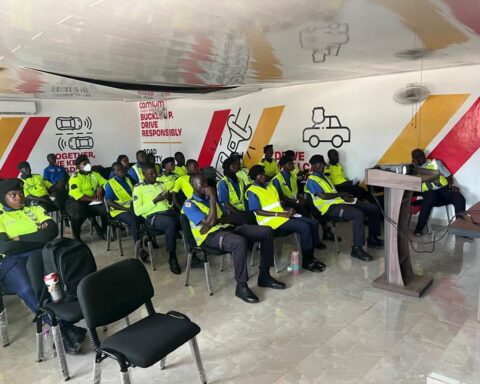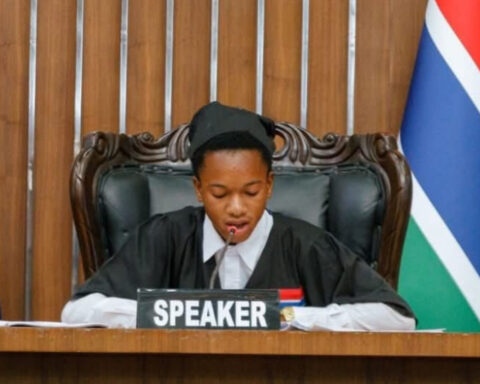By Andrew Sylva
In the rapidly evolving global political landscape, the Republic of The Gambia faces both challenges and opportunities in shaping a foreign policy that truly reflects its national aspirations. Foreign policy is no longer confined to mere state-to-state relations or reactive diplomacy. For a small yet strategically significant nation like The Gambia, foreign policy must be a deliberate blend of security imperatives, strategic national interests, and robust economic and trade diplomacy.
This approach is not just ideal—it is essential. As global power dynamics shift, nations that clearly define and pursue their strategic interests are the ones that thrive. The Gambia must therefore position itself to engage the international community from a place of strength, purpose, and foresight.
The strategic importance of security in foreign policy
Security is a foundational pillar of any credible foreign policy. For The Gambia, situated in a region historically marked by political instability, cross-border insurgency, and economic volatility, national security cannot be delinked from international diplomacy.
Regional integration mechanisms like Ecowas have played an important role in maintaining peace and democratic order in the sub-region. The 2016 political impasse in The Gambia is a clear case in point—where diplomatic pressure, underpinned by regional military readiness, ensured a peaceful transition of power. This demonstrates the inseparable link between security cooperation and successful foreign policy outcomes.
To sustain peace and deepen stability, The Gambia must strengthen bilateral and multilateral partnerships in security—ranging from counterterrorism collaboration to maritime security and intelligence sharing. These efforts will not only protect national sovereignty but will also enhance the country’s credibility as a responsible regional actor.
Defining and defending strategic national interests
Strategic national interests refer to the long-term goals a country pursues to maintain its sovereignty, improve the welfare of its citizens, and assert its presence in the global order. For The Gambia, such interests are rooted in political stability, economic growth, sustainable development, and social cohesion.
A foreign policy built around national interests must avoid the trap of reactive diplomacy and instead anticipate global trends and domestic needs. For instance, climate change, food insecurity, and migration are pressing issues for The Gambia. Addressing these effectively requires forging international partnerships aligned with the country’s development goals.
The government must invest in foreign service institutions to develop a cadre of professionals capable of identifying, negotiating, and defending The Gambia’s interests in various global fora. From advocating for climate justice to negotiating aid packages or trade agreements, the emphasis must be on strategic engagement.
Economic and trade diplomacy as engines of national growth
Economic and trade diplomacy, once peripheral in traditional diplomacy, has become central in the 21st century. The Gambia, being a small economy with limited industrial capacity, must leverage diplomacy to unlock economic opportunities, attract foreign direct investment (FDI), and expand its export base.
The reorientation of Gambian diplomacy toward economic goals should focus on several fronts. First, there is the need to negotiate favourable trade agreements that open up new markets for Gambian products. Agro-based goods, fisheries, and tourism services are sectors with significant export potential. Bilateral and multilateral trade deals must prioritise tariff reduction, technology transfer, and capacity building.
Second, attracting investment requires a stable policy environment and effective branding. Gambian embassies and missions should not merely serve ceremonial roles; they must act as economic hubs tasked with investor outreach, showcasing the country’s value propositions, and facilitating trade connections. This calls for a shift from protocol-based diplomacy to purpose-driven economic engagement.
Third, regional trade must be prioritized. The Gambia’s geographic location offers unique logistical advantages within West Africa. By improving border efficiency, harmonising standards, and capitalising on the African Continental Free Trade Area (AfCFTA), The Gambia can become a trade facilitator in the region.
Integrating the three pillars: A unified foreign policy framework
An effective foreign policy for The Gambia cannot treat security, national interest, and economic diplomacy in silos. Instead, these three elements must be integrated into a unified framework that informs all diplomatic engagements.
Consider, for example, the potential of a trilateral engagement involving the EU, ECOWAS, and The Gambia. By aligning with the EU on climate financing, ECOWAS on regional security, and international financial institutions on infrastructure investment, the country can build a coherent foreign policy narrative.
Moreover, domestic policy coherence is essential. No foreign policy can succeed without matching internal stability and administrative efficiency. Institutions such as the Ministry of Foreign Affairs, the Ministry of Trade, and national security agencies must operate in close coordination. A National Foreign Policy Council could be instrumental in ensuring strategic alignment across sectors.
Challenges and the way forward
While the vision is clear, implementation remains a challenge. The Gambia’s foreign service is under-resourced, with limited training and support for diplomats. Additionally, the country lacks comprehensive policy documents that clearly outline its foreign policy objectives. This gap must be urgently addressed through consultations involving government, academia, civil society, and the private sector.
There is also the challenge of balancing foreign influence. The Gambia must maintain its sovereignty and decision-making autonomy while engaging global powers. Diplomatic agility is key—maintaining friendly relations with both traditional Western partners and emerging powers such as China, India, and Turkey, without compromising national values.
Furthermore, public diplomacy must be strengthened. Gambians at home and abroad must understand and support the country’s foreign policy direction. Diaspora engagement, cultural diplomacy, and strategic communication will be vital in projecting the right image of The Gambia globally.
Conclusion
As the world grows more interconnected yet more unpredictable, small states like The Gambia cannot afford to be passive observers. Security, strategic national interest, and economic diplomacy are not abstract concepts—they are the tools by which The Gambia will reposition itself in the scheme of national development. In a world driven by markets and innovation, the old diplomacy of handshakes and protocol must give way to one that delivers tangible results. For The Gambia, economic and trade diplomacy isn’t just an option — it should be the foundation of its foreign policy going forward.





